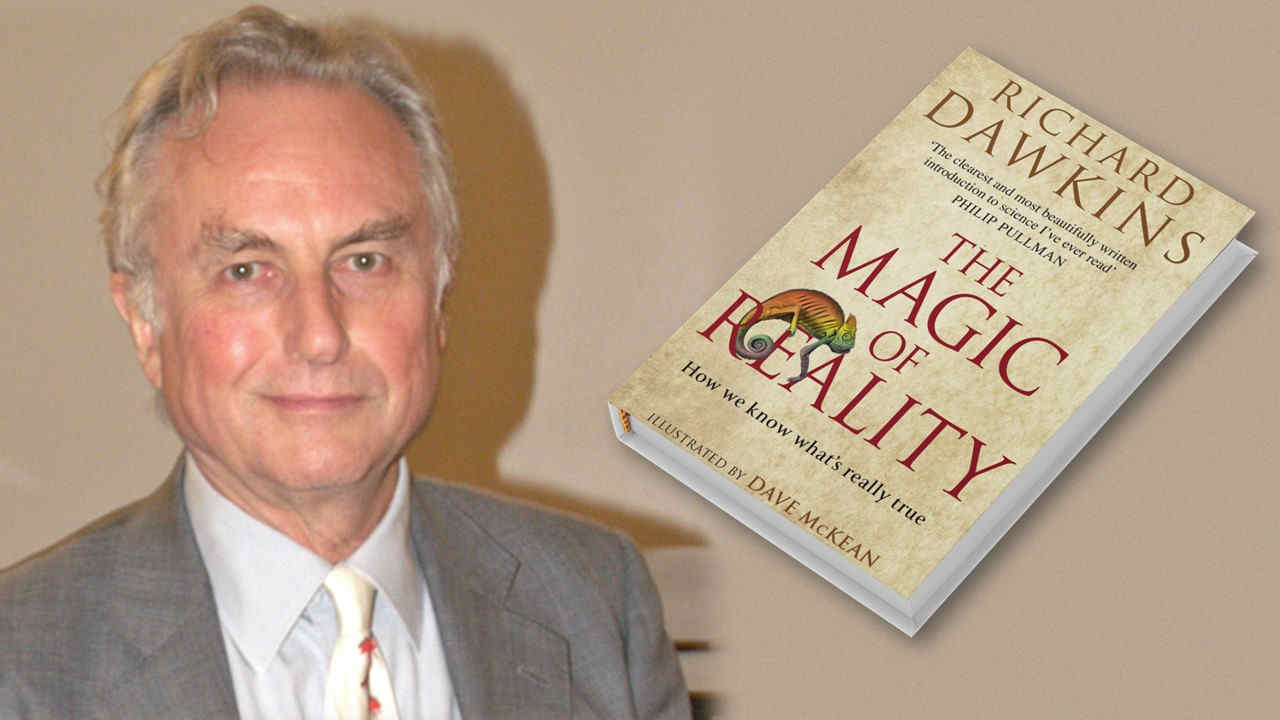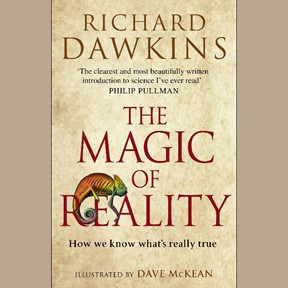
All science is either physics or stamp collecting. Physics students tend to be ignorant of other sciences like geology, biology and chemistry. If there is one book that serves as a gentle reminder of this fact then The Magic of Reality by Richard Dawkins is it.
Richard Dawkins is a renowned English evolutionary biologist, former esteemed professor at Oxford University and a popular science writer whose books may come off as controversial to many. But his book The Magic of Reality is the perfect introduction to science, for everyone.
Richard has made science so simple and fun to read, through stories well told and analogies plucked from day to day life. Whether it be astronomy, biology, geology, physics or chemistry, all the major sciences have been covered in his book and with so much detail that it is commendable.
The opening chapter to The Magic of Reality is the most important section in the book as it explains the three kinds of magic we know of but often fail to distinguish between.
The first magic is that we do not yet understand, that we refer to as supernatural or mystery. The second magic is seen on stage or illusion in one word. The third kind is the magic of reality (straight from the title of the book) or what we know for sure is true – natural.
Throughout the book, Richard Dawkins has narrated popular myths from ancient history. Tales through which our ancestors, in their naivety, mistook the seemingly natural phenomena as mystical or supernatural.
Myths from Japan, India, the Middle East, from the Americas and from Africa that later turned out to be science of reality. Dawkins shows that what we didn't have explanation for, we put it up to the unknown, or God in some cases, which is not the way of science. Science is the pursuit of knowledge, not giving up out of ignorance.
For example, there is a creation story from Central Africa in which the great God Bumba felt a terrible pain in his stomach, due to which, he vomitted the sun, the moon and the stars. The ocean water dried up with the heat and so there was land. But still ailing, Bumba vomited once more, this time bringing forth some animals, the leopard, the eagle, the crocodile, the fish, the tortoise, and then some men.
After each made-up story, genuine facts are revealed comprehensively. Richard Dawkins and other biologists like him know that there was no first human. Even other animals did not just pop up out of the blue as in the story. Dawkins explains this extensively in beautiful fashion.
Dawkins has also shown in the book how life is interconnected through sciences, how is it evolved over many many stages, slowly but surely. Strong evidences are laid out for the readers, including but not limited to, how similar human DNA is to those of chimps, cats, cattle and mice.
Consider another popular myth, that the rainbow was a bridge between the heavens and the earth. The great gods would use the bridge of the colorful rainbow to descend and to ascend.
In words of Richard Feynman, American physicist and Nobel laureate: "God was always invented to explain mystery. God is always invented to explain those things that you do not yet understand."
Dawkins has eloquently described the reasons why rainbows form, why they are vibrant in color, how to find a rainbow at what angle and so on. In fact, there is an entire chapter dedicated to rainbow in the book.
Similar stories have been told about night and day, about changing of seasons and eclipses, etc. from a time when we did not still possess the tools necessary to comprehend nature in the scientific way. Through questions, guided by logic and reason, verified with experiment.
Towards the end of the book, Richard Dawkins has pinpointed that despite making numerous advances in science and technology, there's plenty of people who reject some myths selectively but on the other hand, accept other "more beloved" myths.
For example, people reject frogs turning into princes, they also reject the story of Bumba, and other such creation stories; but they accept those of a prophet who turned water into wine or that the universe was created by four-headed God upon a lotus.
No surprise that Dawkins ends the book this way as he is an outspoken atheist and advocate of rational thinking. Hence he has criticized the foundations of organized religion in the book towards the end and this time more gently.

The whole point of the book is that truth is even more beautiful than popular fantasy. Next to the magic of reality, the other two magics, although to some extent entertaining to see or hear, become cheap by comparison.
Dawkins says: The magic of reality is, in one word, wonderful. Wonderful and real. Wonderful because real. Read The Magic of Reality if you wish to have a new perspective on the sciences and gain a thorough understanding of everyday natural phenomena.
The Magic of Reality was praised by the New Scientist calling the book a "triumph". Bill Gates said, "engaging book offering compelling answers to big questions, from how the universe formed to what causes earthquakes." The magic of reality makes vastness of science less daunting and accessible to everyone.
The Magic of Reality was praised by the New Scientist calling the book a "triumph". Bill Gates said, "engaging book offering compelling answers to big questions, from how the universe formed to what causes earthquakes." The magic of reality makes vastness of science less daunting and accessible to everyone.







 Physics, astronomy and science history blog for students
Physics, astronomy and science history blog for students
Responsive Ad Slot